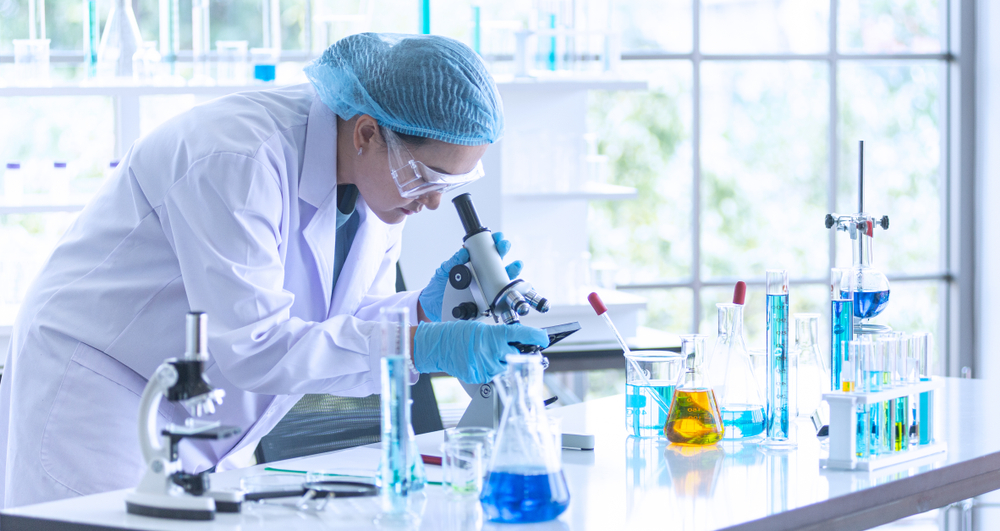Introduction
You might be looking for career options involving backstage roles. For this, you may know of the profession involving medical laboratory sciences. This terminology will pop up the term medical laboratory technician job role. It’s an exciting journey, and you may wonder how to become a medical lab technician?
However, there is a more advanced career option available; the career option of a Medical Laboratory Scientist. Once you enroll as an MLT, you can pursue a higher career option with continued education and gaining in-depth expertise. You can adopt a supervisory role to excel in your career.
This comprehensive guide will take you deeper into the journey of an MLS. It will guide you through the five successful characteristics of an MLS. Let’s get started.
Understanding Who is a Medical Laboratory Scientist
You can think of the medical laboratory technologists or scientists as a superficiary role in diagnostics. The medical laboratory technicians work under the supervision of an MLS. Statistics say that around 70% of the decisions regarding disease detection owes to medical laboratory scientists. Medical laboratory scientists or technicians play more advanced and supervisory roles.
MLS and MT can execute high-precision testing that requires manual handling rather than the use of technology, in contrast to MLTs who carry out easy testing. You can begin working in your current position as an MLT. Later, you can acquire a lot of experience and keep learning to become a medical laboratory scientist or technologist.
The Responsibilities of a Medical Laboratory Scientist
As said, MLS plays a more specialized role in a healthcare laboratory. They cater to a range of duties, including supervising medical laboratory technicians. In addition, they perform various other responsibilities like:
- Examining and evaluating blood, bodily fluids, tissues, and cells.
- Communicating test findings to physicians.
- Employing advanced laboratory equipment like microscopes and cell counters to ensure precise analysis.
- Matching blood for transfusions through a process called cross-matching.
- Monitoring patient progress and outcomes.
- Conduct differential cell counts to identify abnormal cells, aiding the diagnosis of conditions like anemia and leukemia.
- Establish quality assurance programs to oversee and maintain the accuracy of test results.
- Supervise the work of medical laboratory technicians.
How to Pursue a Career as a Medical Laboratory Scientist
You might wonder how to pursue a career in this field after knowing about the exciting journey and responsibilities of an MLS. Well, it is a more advanced role than an MLT. While an MLT requires an associate’s degree completed in two years, an MLS requires a bachelor’s degree, which requires four-year tenure. You can earn a bachelor’s degree in related sciences like biology, chemistry, biochemistry, etc.
Further steps include:
Complete clinical internship
After completing your bachelor’s degree, you will need to gain practical experience through a clinical internship or a medical laboratory science program. These programs typically last about 12-24 months and provide hands-on training in various laboratory departments.
Certification
After completing graduation and training requisites, you need to gain certification in this field. In the United States the most widely recognized certification is by the American Society for Clinical Pathology (ASCP). To be eligible for certification, you will need to pass the ASCP Board of Certification (BOC) exam.
Licensing
Although the certification improves your caliber, licensing is also a requisite. States differ in their licensing requirements. Therefore, gain knowledge about the licensing need of your area and receive a license through a certified licensing body in the state.
Pursue Advanced Specialization (optional)
If you wish to specialize further, you can pursue additional certifications or advanced degrees in areas such as Clinical Chemistry, Hematology, Microbiology, Immunology, or Molecular Biology. These specializations can enhance your career prospects and open up opportunities for leadership roles or research positions.
Five Successful Characteristics of a Medical Laboratory Scientist
Let’s come to the main section of this blog. The successful characteristics of an MLs that you should acquire while hoarding the journey of an MLS.
Passionate for Learning
The healthcare industry is rapidly growing. New technologies are getting in, and the traditional ones are getting replaced. Therefore, with this advancement, you need to keep pace. Incorporate a passion for learning new technologies, and explore new chances in the healthcare industry. Successful MLS should know about the trending tools, equipment, or software penetrating the healthcare industry. Resonate with the advancements to make the most out of them.
Observational Expertise
The key skill for any medical lab professional is attention to detail. They should notice small changes in the work they are performing. Moreover, they should make use of several observational tools like microscopes, data analysis systems, and computer software.
Communication
70% of the diagnostic tests owe to the findings of an MLS. Therefore, effectively communicating is the key to accelerating patient care. Physicians can gain better insights into the disease through effective communication skills.
Making Decisions
It is essential; to make timely decisions to utilize the time and resources better. If a test fails, quick decisions should be made to reperform or discard it. If a certain test fails to give adequate results, switch the tests.
Data Analysis
Data collection is not the only step. You should know how to analyze the results. Some data generates a tremendous amount of data. Therefore, analyzing immense data requires exceptional analysis skills and expertise.
Conclusion
To conclude, medical laboratory scientists pose a more advanced healthcare role in the laboratory. They supervise medical laboratory technicians and perform complex tasks in the lab. Around 70% of the decisions regarding disease detection owe to medical laboratory scientists. They perform manual handling of tests more often than utilizing technologies. Therefore, medical laboratory scientists are more prone to laboratory haphazard than MLTs. Following lab safety protocols are essential in this regard.
Are you looking for top healthcare jobs? HealthCareTalentLink is a viable platform to cater to all your needs. Here, your passion will resonate with the due platform and space you deserve. Therefore, connect to the pool of healthcare professionals and start your exciting journey now.
You Might Like: Anxiety in the Modern Age: Causes, Effects, and Coping Strategies Hyderabad











